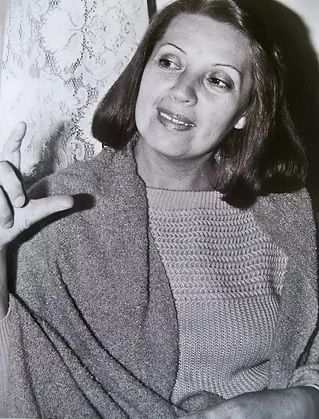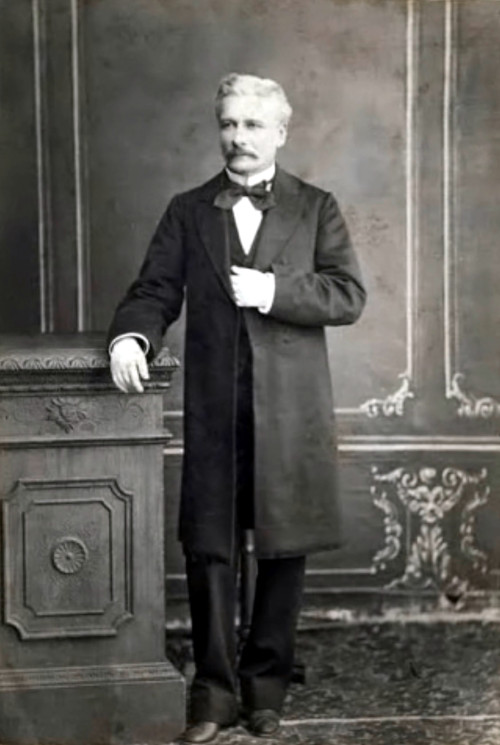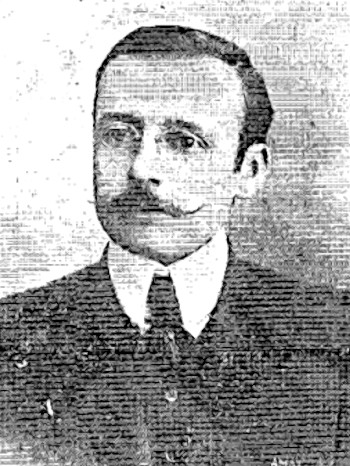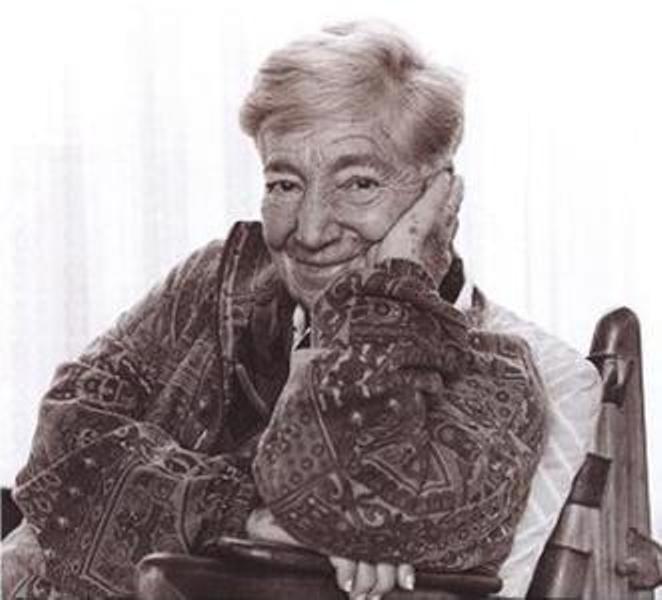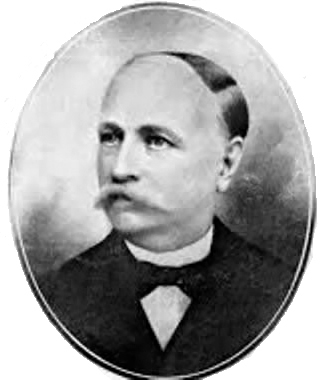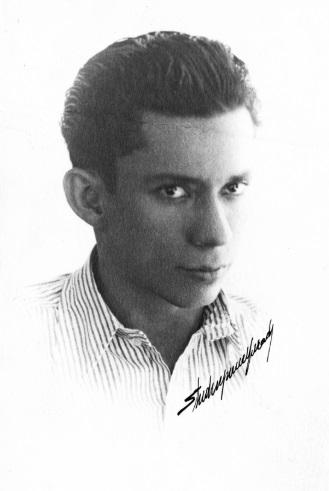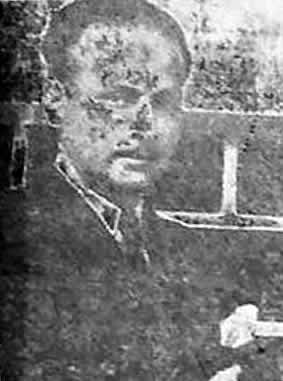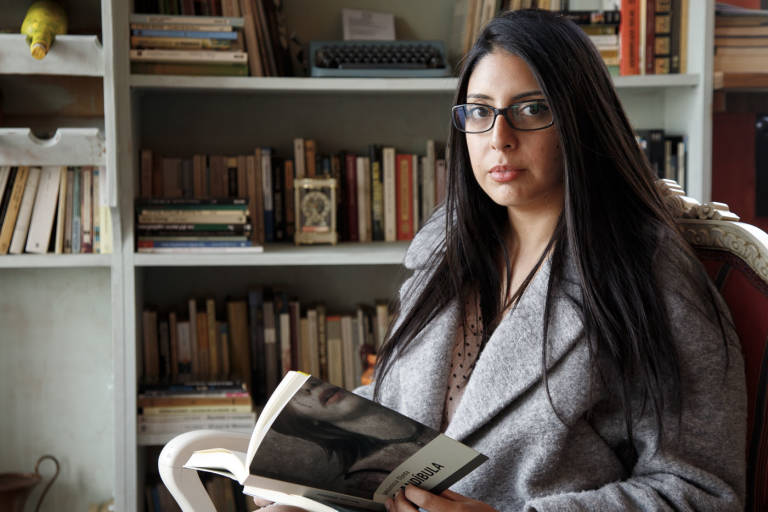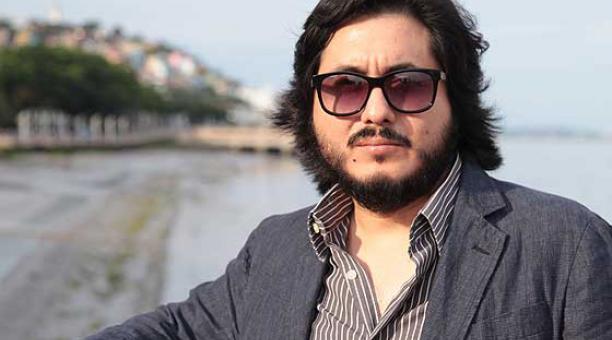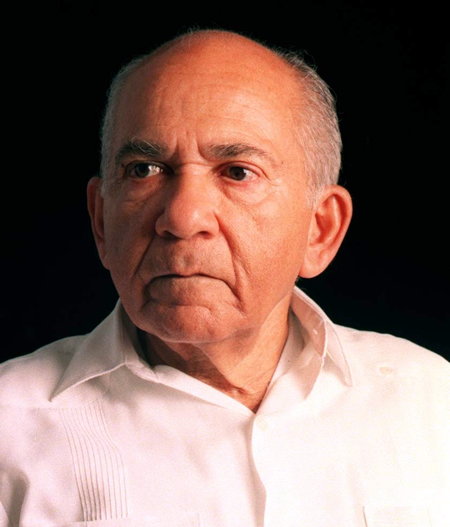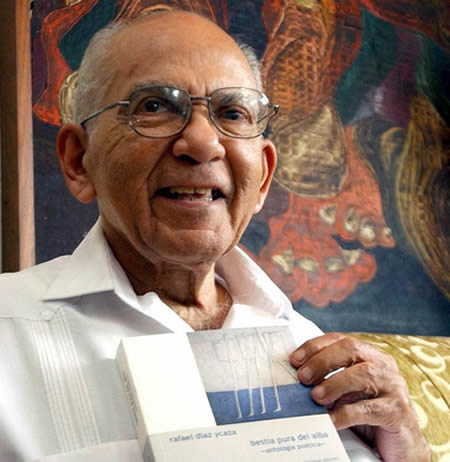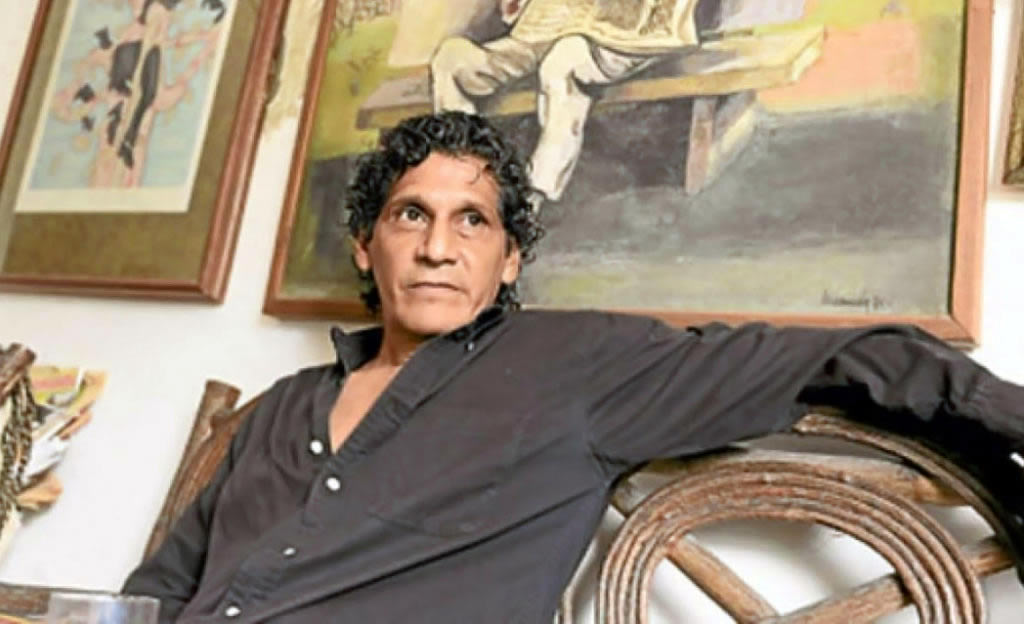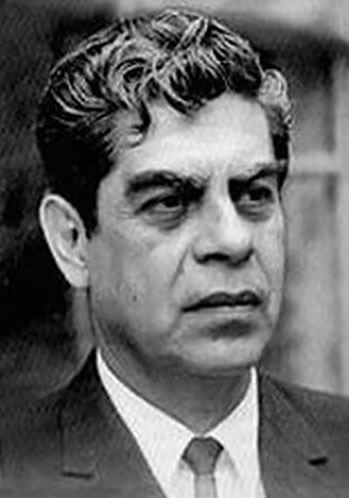Morayma Violeta Luna Carrera is an Ecuadorian poet, essayist, journalist, literary critic, professor. She was born on February 24, 1943 in Guayaquil. She is a member of various organizations, including the Press Circle of Ecuador, the Society of Ecuadorian Writers, and the House of Ecuadorian Culture.
Category: Writers from Guayaquil
Numa Pompilio Llona
Numa Pompilio Llona (Guayaquil, March 5, 1832 – April 5, 1907) was an Ecuadorian poet, lawyer, journalist, educator, diplomat, and philosopher. He served as a diplomat abroad, in countries such as Spain, France, Italy and Colombia, during which time he formed friendships with famous authors such as Victor Hugo, George Sand and Alphonse de Lamartine. He served as the rector of the University of Guayaquil, and also as the director of the Municipal Museum and Library of Guayaquil. During his lifetime he was one of Ecuador’s most popular poets.
Continue reading “Numa Pompilio Llona”Joaquín Gallegos Del Campo
Joaquín Gallegos Del Campo was an Ecuadorian modernist poet, newspaper publisher, and liberal politician. He was the father of the legendary author Joaquín Gallegos Lara. He was born in Guayaquil, Ecuador on July 27, 1873. In 1894, he and his brother Emilio founded the liberal weekly newspaper El Cáustico. In 1896, he founded another liberal newspaper, América Modernista, which published many modernist poets of the era. On November, 20, 1910, while serving as Secretary-General of the Government of El Oro Province, he was killed by a stray bullet during a revolutionary riot gunfight when he looked out his office window from the government building to see what was happening. At the time of his death his only son was less than 2 years old. In 1912, his only book Mis recuerdos: poesías líricas y cuentos en prosa was published posthumously by his window Emma Lara Calderón.
Continue reading “Joaquín Gallegos Del Campo”Nela Martínez
Nela Martínez Espinosa was an Ecuadorian communist, politician, activist, feminist and writer. She was born in Guayaquil, Ecuador on November 24, 1912 and died in Havana, Cuba on July 30, 2004. She was once briefly married to the legendary Ecuadorian author Joaquín Gallegos Lara, with whom she shared a communist ideology. While their marriage ended in divorce, they remained lifelong friends. When Gallegos died in 1947 he left behind an unfinished novel titled Guandos, which Martínez completed and published in 1982. Both Gallegos and Martínez are credited as co-authors of Guandos.
Continue reading “Nela Martínez”Francisco Campos Coello
Francisco Campos Coello (Guayaquil, July 24, 1841 – April 25, 1916) was an Ecuadorian writer, historian and politician. In 1871, at the age of 30 he published the hagiographic novel “Plácido,” considered the third novel published in Ecuador. In 1893, he published in installments in the magazine El Globo Literario, his novel “La receta,” which is regarded as first literary work of science fiction in Ecuador. The novel, divided into six chapters, tells the story of R., a man who discovers the recipe for an elixir that can make him go to sleep and wake up 100 years in the future, which is how he transports himself to Guayaquil at the end of the 20th century, when the city had become a utopian society as a result of the implementation of liberal ideas of the time.
Continue reading “Francisco Campos Coello”Joaquín Gallegos Lara
Joaquín Gallegos Lara (Guayaquil, April 9, 1909 – Ibidem, November 16, 1947) was an Ecuadorian novelist, short story writer, poet, and literary critic. His works often reflected the social and political issues of his time, including poverty, inequality, and injustice. He was a member of the Communist Party of Ecuador and was imprisoned many times for his political convictions. Lara was born with Pott’s Disease, a rare spinal disease which caused paralysis in his legs. Due to his inability to walk, he was unable to attend school and instead devoted himself to self-study at home, in which time he mastered the French, German, Italian, and Russian languages. He was a member of the “Guayaquil Group,” and has been described as the group’s spiritual leader. The book of short stories “Los Que Se Van” [Those Who Leave] (1930), co-authored with Demetrio Aguilera Malta and Enrique Gil Gilbert, marked the beginning of literary social realism in Ecuador. His most famous novel, “Las cruces sobre el agua” [Crosses on the Water] (1946), is concerned with the November 15, 1922 massacre of striking workers in Guayaquil. Despite his brief life, Joaquín Gallegos Lara’s works are still widely read and continue to be studied and recognized for their profound impact on Ecuadorian literature.
Continue reading “Joaquín Gallegos Lara”Marco Antonio La Mota
Marco Antonio La Mota was an Ecuadorian journalist, poet and short story writer. He was a staff writer for the newspaper El Telegrafo. He was born in Guayaquil, Ecuador. The date of his birth is unknown; it is known he died in 1946. In 1941 La Mota published a book of short stories titled Las huellas de una raza with a foreword by Joaquín Gallegos Lara (1909-1947).
Continue reading “Marco Antonio La Mota”Mónica Ojeda
Mónica Ojeda (Guayaquil, 1988) is an Ecuadorian novelist, short story writer, and poet. In 2017, she was named as one of the Bogota39, a selection of the most talented and promising young writers in Latin America (awarded every 10 years, Bogota39 is a UNESCO World Book Capital project, in conjunction with the Hay Festival). In 2018, Ojeda published the novel Mandíbula, which tells the story of a teenage girl obsessed with horror stories and creepypastas who is kidnapped by her literature teacher. The book was widely acclaimed by critics upon its publication, with the Spanish newspaper El Pais calling it “one of the novels of the season.” In 2022, Mandíbula was translated into English by Sarah Booker and published by Coffee House Press as Jawbone — a translation that has been highly praised by critics and is currently a longlist nominee for the National Book Award in the U.S. in the translation category.
Continue reading “Mónica Ojeda”Ernesto Carrión
Ernesto Javier Carrión Castro (Guayaquil, 1977) is a distinguished poet and novelist whose work has won numerous awards and has been widely recognized both in his home country and internationally. His literary career began to gain momentum in 2002 when he was awarded the César Dávila Andrade National Poetry Prize for “Carni vale”. Over the years, Carrión Castro’s unique voice and innovative storytelling have earned him several prestigious awards such as the Jorge Carrera Andrade National Poetry Prize for “Viaje de Gorilas” in 2013, and the Casa de las Américas Novel Prize for “Incendiamos las yeguas en la madrugada” in 2017. His book “El día en que me faltes” won the Lipp Novel Prize in 2017. Most recently, in 2019, his novel “El vuelo de la tortuga” won the Miguel Donoso Pareja Prize. In 2023, Carrión Castro’s continuous contribution to literature was recognized with the Gonzalo Rojas Residency Scholarship. His ability to weave compelling narratives with poetic language has solidified his status as one of the most significant contemporary writers in Latin America.
Continue reading “Ernesto Carrión”María Fernanda Ampuero
María Fernanda Ampuero is an Ecuadorian writer, journalist and feminist. She was born in Guayaquil, Ecuador on April 14, 1976. In 2018, Ampuero’s first book of short stories Pelea de gallos (2018; translated into English as Cockfight in 2020) received the Joaquín Gallegos Lara Prize.
Continue reading “María Fernanda Ampuero”Daniela Alcívar Bellolio
Daniela Alcívar Bellolio is an Ecuadorian writer, literary critic and feminist. She was born in Guayaquil, Ecuador on March 3, 1982. Alcívar’s first two books were published in 2016, her short story collection Para esta mañana diáfana, and her essay collection Pararrayos, which she wrote while living in Buenos Aires, Argentina. In 2018, her novel Siberia was awarded the Joaquín Gallegos Lara Prize for best novel of the year and also received honorable mention at the La Linares Prize.
Continue reading “Daniela Alcívar Bellolio”Ecuadorian poet and novelist Rafael Díaz Ycaza reading from his poetry and prose
Ecuadorian poet and novelist Rafael Díaz Ycaza reading from his poetry and prose. Archive of Hispanic Literature on Tape (Library of Congress, Control Number 93842308), Recorded Mar. 27, 1977, in the Library of Congress Recording Laboratory, Studio B, Washington, D.C. Recorded for the Archive of Hispanic Literature on Tape. Production level cataloging. Also available in digital form on the Library of Congress Web site.
Go to RecordingRafael Díaz Ycaza
Rafael Díaz Ycaza (Guayaquil, October 28, 1925 – August 28, 2013) was a poet, novelist, short story writer and columnist. His notable works include poetry collections such as “Statues at Sea” (1946), “Botella al Mar” (1964), and “Zona Prohibida” (1972), each resonating with his lyrical style and profound imagery. Among his novels are “Los Rostros del Miedo” (1962) and “Los Prisioneros de la Noche” (1967). Beyond his literary achievements, Díaz Ycaza was honored with various awards and recognitions, including the Aurelio Espinosa Pólit Prize (1985)” and the “José de la Cuadra National Short Story Prize (1967). In 2011, Ecuador’s President Rafael Correa awarded Díaz with the the nation’s highest literary distinction, the Eugenio Espejo National Prize, for his lifetime of literary work.
Continue reading “Rafael Díaz Ycaza”“His book [Zona prohibida] was like a bible for the youth of my generation, especially for its social poetry.”
Sonia Manzano (Poet) – quoted in “Rafael Díaz Ycaza, el hombre que dedica su vida a las letras,” El UNIVERSO, Sept 2, 2011.
Jorge Martillo
Jorge Martillo Monserrate is an award-winning poet and has been a columnist for various newspapers. He was born on May 2, 1957 in Guayaquil, Ecuador. He has published the poetry books: Aviso a los navegantes (1987); Fragmentarium (1991); Confesiorarium (1996) and Vida póstuma (1997). He was awarded the Aurelio Espinosa Pólit Prize (1991).
Continue reading “Jorge Martillo”Enrique Gil Gilbert
Enrique Gil Gilbert (Guayaquil, July 8, 1912 – Ibidem, February, 21, 1973) was an Ecuadorian novelist, short story writer, nonfiction writer, politician and teacher. He was the youngest member of the “Guayaquil Group,” a group of realist writers of the 1930s Ecuador. At only eighteen years of age he co-wrote “Los que se van, cuentos del cholo y del motuvio“ (1930) with Demetrio Aguilera Malta and Joaquín Gallegos Lara – a book of short stories which marked the beginning of literary realism in Ecuador. His most famous work is his only novel, “Nuetro pan” (1942), which was translated into English in 1943 as “Our Daily Bread.” His other noteworthy story collections include: “Yunga,” “Relatos de Emanuel” [Tales of Emanuel], and “La cabeza de un niño en un tacho de basura” [The Head of a Child in a Trash Can].
Continue reading “Enrique Gil Gilbert”
